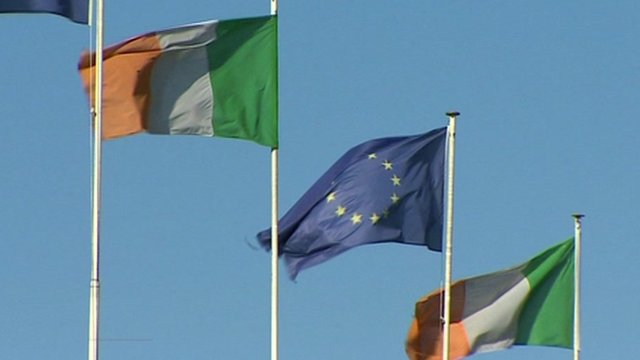Ireland is on course to back the European fiscal treaty with a vote of around 60% at the halfway stage in the count.
Tallies from regional counting centres put the Yes campaign, supported by the government, mainstream political parties, trade unions and business, on course for 60 per cent win. Enda Kenny, the Irish Prime Minister, expressed his confidence two hours into ballot counting that followed a bad-tempered campaign marred by low turnout and deep social divisions.
“Clearly, trends here would indicate a strong run in favour of the ‘yes’ vote,” he said from the count centre in his Mayo constituency in western
No campaigners have conceded defeat as tallies in the regional counting centres show a victory for the Yes side of 58 per cent or higher.
Declan Ganley, a pro-business and pro-EU No campaigner, said that he hoped government promises that a Yes vote would help economic growth and stability would come to pass.
“People agreed with the argument that the treaty would provide certainty, stability, growth and jobs. I’m looking forward to those things happening after this vote,” he said.
The Irish government warned that a No vote would lead to a Greek-style banking run, a tripling of Ireland’s borrowing costs and would plunge the country into bankruptcy by 2014.
Ireland has posted the EU’s worst deficits since 2009, including an EU-record 32.4 per cent in 2010 and 13.1 per cent last year. Both figures were greatly inflated by the exceptional costs of Ireland’s decision to nationalize five of its six banks rather than see any collapse — a debt burden that pushed Ireland itself into the bailout zone in 2010. Repayments to international bondholders, central banks and interest on decades-long loans are expected to cost Ireland’s taxpayers €68 billion ($85 billion), equivalent to €19,000 ($23,500) for every man, woman and child.
[adrotate banner=”33″]

